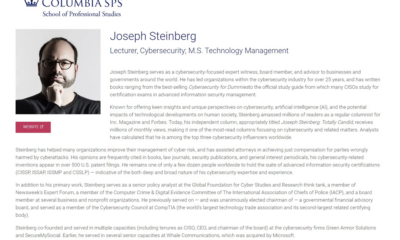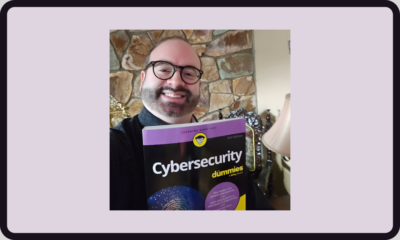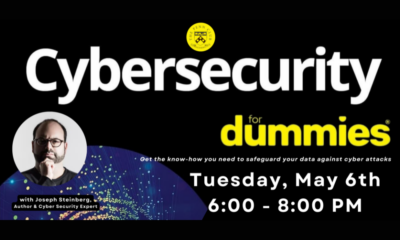Do Not Believe These 8 Dangerous Myths About Scams
One of the most important defenses that you can possess against scammers is knowledge, including an awareness that you are a target, an understanding of how scammers target intended victims, and the ability to discern between facts and fiction. On that note, I am sharing eight popular scam-related myths, and why it is important that you dismiss all of them as falsehoods, no matter how many times you hear them being repeated as if they were wisdom. As such…
Do not believe any of these 8 popular myths:
Myth #1: Scams are easy to identity.
Reality #1: Scams are often quite sophisticated, and are frequently orchestrated by criminals who understand sufficient human psychology so as to be able to effectively trick people. Many scammers are master manipulators – “con men” – who, today, can utilize the Internet to credibly impersonate parties whom you, your friends, and/or your family members trust.
Myth #2: I am too smart to become a victim.
Reality #2: According to a Better Business Bureau study, nearly 4 out of 5 North American scam victims has a college degree or graduate degree; many intelligent, educated people fall prey to scams.
Myth #3: The typical victim of a scammer is a senior citizen.
Reality #3: According to the Better Business Bureau, well over 2/3 of American and Canadian scam victims are under the age of 45.
Myth #4: Scammers always try to steal money.
Reality #4: Many scammers want to steal data, which they can either sell, or exploit themselves in order to steal more money than would have been possible with the original scam. In the cases of scammers who target individuals, the criminals may want to steal someone’s identity for purposes such as facilitating illegal immigration into some country, being able to present false identification if arrested while perpetrating a crime, obtaining a fraudulent driver’s license or passport, stealing money from intended victims’ bank accounts, opening credit card accounts in other peoples’ names, spear phishing a compromised party’s coworkers and instructing them either to wire money as payment for goods or services or to divulge even more-sensitive private information, etc. In the case of businesses, criminals may be looking to leverage the stolen information in order to sell it to competitors, embarrass the victimized business, insider trade, steal merchandise, steal money, or commit various other crimes.
Myth #5: The United States government vets all American businesses, so people in the USA cannot be scammed by businesses, only by individuals.
Reality #5: The United States government, as well as State governments, may require that certain types of businesses register, but government bodies typically do not vet businesses in a fashion that is adequate in order to prevent scammers from opening operations. Furthermore, a scammer’s “business” may not even officially exist as a true legal entity. Also, in today’s day and age keep in mind that you have no idea if someone contacting you by phone or online is actually in the United States, regardless of from what phone number or domain he or she appears to be contacting you – so, who says that an “American business” that you encountered online is truly an American business?
Myth #6: Scams have only a minor impact on the economy and population.
Reality #6: According to the Better Business Bureau, not only is nearly $50 Billion lost to scams each year, but nearly 1 out of every 5 people in North America is scammed in some way on an annual basis.
Myth #7: Scammers only target people for significant amounts of money – it is not worth their time to steal just a few dollars – so requests for small amounts of money are not likely to be scams.
Reality #7: Because people are a lot less diligent about tracking small expenditures than they are about doing the same for major purchases, many scammers specifically seek to scam people out of small amounts of money — that, of course, add up for the criminals as they victimize large numbers of people. Also, keep in mind that what you consider to be a small amount of money may seem like a large sum to scammers in various locations overseas.
Myth #8: There is no way to protect oneself from being scammed. It is part of life.
Reality #8: According to research performed by the Better Business Bureau, 80% of people who learn about a particular scam in advance are able to avoid becoming victims to that scam when criminals target them with it. Likewise, people who are aware that they are targets are also more successful in fending off attacks than folks who think that they are unlikely to be targeted by scammers because they do match the typical demographic profile of a victim. One way to greatly improve your odds of defeating a scammer is, therefore, to learn about scams, which is precisely why I wrote this column.













 CyberSecurity for Dummies is now available at special discounted pricing on Amazon.
Give the gift of cybersecurity to a loved one.
CyberSecurity for Dummies is now available at special discounted pricing on Amazon.
Give the gift of cybersecurity to a loved one.